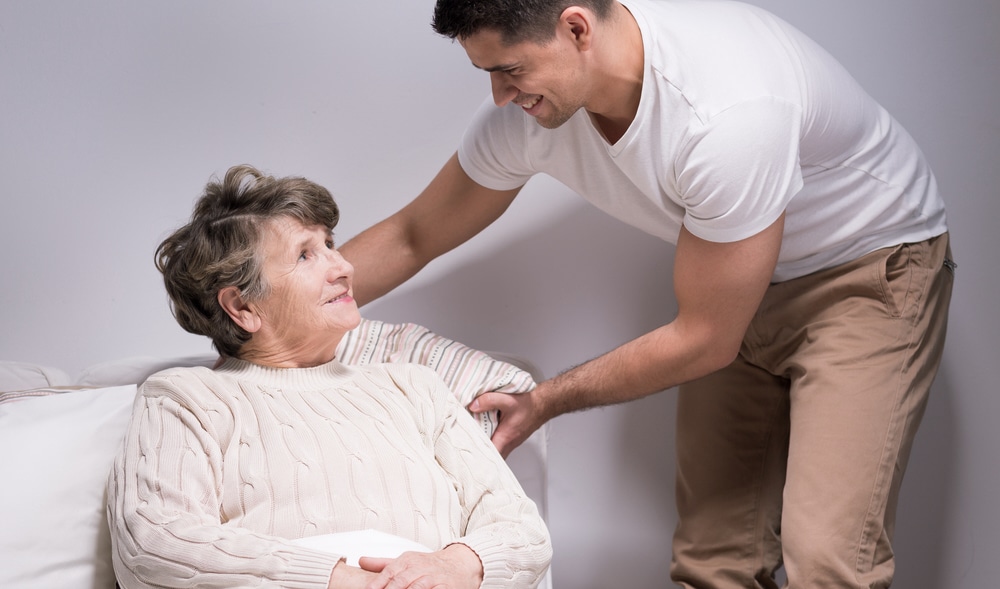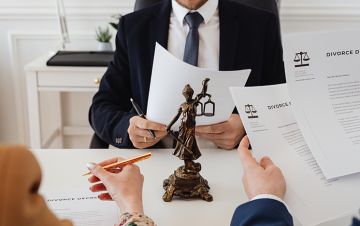Guardianship of an elderly person is a legal procedure that allows you to protect the interests of a person who needs help due to old age, health or loss of the ability to make decisions independently. If your close relative is experiencing difficulties managing their property or daily affairs, a guardianship will be an important step to ensure their support and legal protection.
When do I need to take out a guardianship?
It becomes necessary to obtain guardianship over an elderly person in cases where they are no longer able to take care of themselves or manage their affairs on their own. This may be due to health conditions, age-related changes or other life circumstances. Guardianship protects the rights and interests of a person who cannot act independently. A guardianship over an elderly person is formalised if the person:
- Has serious chronic illnesses that make it difficult to live independently.
- Has a cognitive disorder, such as dementia or Alzheimer's disease.
- Has lost the ability to make independent decisions due to psychological or physical limitations.
- Needs help with legal or financial transactions.
A guardianship allows you to legally represent the interests of an elderly person, manage their property, enter into transactions, and receive social assistance or compensation.
Stages of guardianship registration: how to obtain guardianship for an elderly person
The procedure for obtaining guardianship over an elderly person is a multi-stage procedure that requires careful compliance with the requirements of the law. It is important to familiarise yourself with the sequence of actions in advance to avoid mistakes or unforeseen delays. Each stage requires careful preparation and close cooperation with specialists.
- Consultation with a lawyer. The lawyer will help you assess your situation, determine the need for guardianship and prepare a list of documents for the court.
- Collection of medical documents. To obtain guardianship, you need to obtain medical certificates confirming the person's health status and inability to make decisions on their own.
- Preparing an application to the court. A lawyer draws up a legally sound application describing the reasons for the need for guardianship and your ability to perform the duties of a guardian.
- Consideration of the case in court. The court considers your application, analyses the documents provided and holds a hearing where you have the right to present your arguments.
- Obtaining a court decision. After a positive court decision, you officially receive the status of a guardian, which allows you to represent the interests of an elderly person.
Following this sequence guarantees not only the successful completion of the procedure, but also the protection of your rights as a guardian. It is better to turn to specialists who will help you fulfil all the requirements without unnecessary delays or mistakes.
Documents required for guardianship
The collection of documents is a key stage of the process, as the court will not be able to make a decision in your favour without a complete package. It is important to pay attention to the relevance of the certificates and the correctness of the application. To successfully apply for guardianship, you need to prepare the following documents:
- Passport and identification code of the applicant (future guardian).
- A medical certificate confirming the health status of the elderly person.
- Certificate of income and place of residence of the guardian.
- Documents confirming kinship (if any).
- An application to the court that meets all legal requirements.
- Other documents that may be required depending on the specific situation.
Preparation of documents requires care, as any discrepancy or missing document may cause a delay. Remember that each case is individual, and additional certificates may be required depending on the circumstances.
Important questions about guardianship of an elderly person in Ukraine:
Question
Is it possible to registration of guardianship over an elderly person without going to court?
Answer
No, official guardianship is appointed only by a court decision. This ensures the legal legality of your actions.
Question
What if other relatives object to your guardianship?
Answer
In this case, a lawyer will help you prepare additional arguments and evidence to defend your position in court.
Legal assistance from the ‘Consultant’:
Preparation of documents. Assistance in collecting all the necessary certificates and preparing an application to the court.
Legal support. Professional representation of your interests in court.
Guaranteed results. Protection of your rights and interests at every stage of the process.
Consultations. Explanation of all legal aspects and development of an action strategy.
Experienced lawyers of the legal service ‘Consultant’ will be able to help you in the process of obtaining guardianship over an elderly person. Contact us for a free consultation so that we can help you understand your rights and find the best way out of your situation.
Taking guardianship over an elderly person is an important step in protecting their rights and ensuring proper care. Working with an experienced lawyer will help you avoid legal complications, save time and ensure a successful outcome.
































